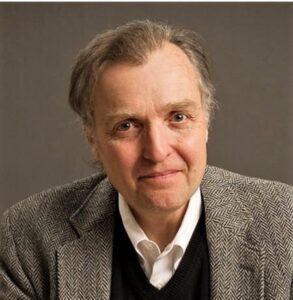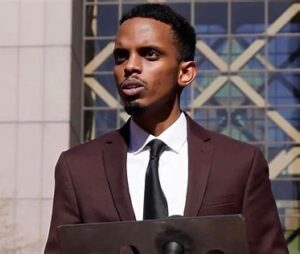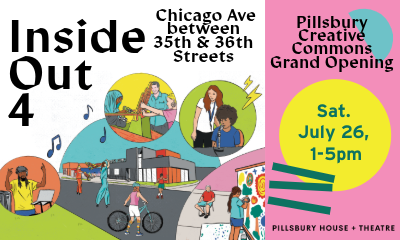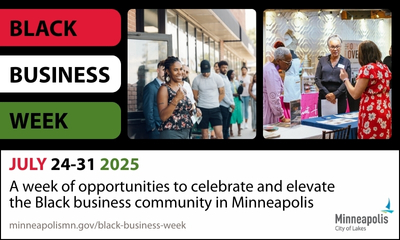
Cam Gordon
BY CAM GORDON
On May 6, Mayor Jacob Frey delivered the annual state of the city speech. During an election year, like this one, when a mayor is running for reelection, like Frey is, the speech is often used not only as a time to reflect and set the stage for the upcoming city budget, but also as a campaign opportunity.
In his 4,308-word speech, Frey outlined progress he believes that the city has made in the areas of safety, housing, the local economy, governance, climate, and public health. He also included sections on improvement efforts on the Northside, Downtown, and Uptown in particular.
The speech was givenin Uptown near Lake and Lyndale at the Abyssinia Event Center, and geographic priorities were reflected in his word choices. In the speech Frey said “Uptown” 10 times, “Northside” 10, “Downtown” 12, “Southside” 3, “Northeast” 1, and “Southeast” and “Southwest” 0.
As for the Southside, Frey used the response to “a three-alarm fire in a vacant Southside building” as an example of firefighters’ effectiveness and the opening next year of the Southside Community Safety Center and “bringing multiple safety services under one roof” as part of progress being made in reforming public safety.
“So, to those who’ve called for police reform, those who’ve protested, testified, organized, and demanded better, thank you,” Frey said. “Your advocacy is being translated into action.”
Some words were used more than others. “Safe” and “safety” were used 40 times, “housing” and “home” 31 times, and “business” or “businesses” 15. “Community” was used 13 times, “neighborhood” 16, “police” 8 and “health” 7. “Climate” was used 5 times and “environment” once.
“The state of our city is strong and growing stronger by the day,” said Frey, who used “strong” or “stronger” 9 times in the speech to help prove his point.
He used the word “partnership” 4 times, and “collaboration” twice and at one point appeared to be complementing two council members, Jason Chavez and Robin Wonsley, with whom he often disagrees.
“Council Member Robin Wonsley,” Frey said, “believes that strong cities protect the unheard. She’s been a powerful advocate for working people, fighting to make sure they’re not left behind.”
“Council Member JasonChavez knows that our immigrant neighbors are part of what makes our city beautiful, and he cares deeply about his ward, in which we have a number of shared projects that benefit our shared constituents.”
He didn’t, however, elaborate on how he and Wonsley or Chavez had collaborated.
Not surprisingly, some word choices appear to reflect the city’s adopted vision, mission, values or goals.
But some key words did not make it into the speech.
The city vision says that “Minneapolis is an intentionally compassionate city where each of us can reach our full potential while caring for one another, eliminating racial disparities, improving our environment and promoting social well-being.”
The mission statement says that “Our City government takes strategic action to address climate change, dismantle institutional injustice and close disparities in health, housing, public safety and economic opportunities.”
Yet “race,” “racism,” “racial” and “disparities” were not mentioned at all in the speech.
Equity is the first of the seven city adopted values, and environmental justice is the fifth of the city’s eight goals.
The words “justice” or “injustice” were not used at all in the speech. “Truth” was used 0 times, “reconciliation” 0, “equity” 0, “Black” 0, “Indigenous” 0, “reparations” 0, and “people of color” 0.
In the wake of the growing understanding of the historic racism in our city, redlining, racial covenants, persistent racial disparities in employment, income, home ownership and more, as well as the findings at the state and federal levels of racist practices by police department and a public commitments by city government to engage in a truth and reconciliation process, the mayor didn’t mention race or reconciliation once.
Despite extensive work in recent years on renter protections, renter rights, and even a ballot initiative to allow rent control, this topic, and even the use of the word “renter,” was avoided.
Despite years of struggle to address environmental injustice degradation in Phillips, most recently at the Roof Depot site, and on the Northside, most recently with council action calling for the closure of the downtown garbage burner, the term was not used once.
While the word “student” was used in reference to a housing program, neither “children” nor “youth” were used at all.
Although the words “worker” and “labor” appeared a few times in the speech, there was no reference to increasing worker protections or reviving the vetoed labor standards board.
Frey mentioned neighborhoods a number of times and said, “We’re rebuilding neighborhoods—not just with concrete and lumber—but with trust and partnership,” but did not mention any additional funding support for the official city-recognized groups that help organize and serve them.
Despite all the talk about safety, one of the newer and likely most successful efforts, the behavioral crisis emergency response (BCR), was also not mentioned. BCR is now available 24/7 throughout the city.
We live in a divided city. Its history has resulted in persistent geographic, racial, and economic divisions and, for those who look closely, these are playing out in this year’s election.
In his speech the mayor clearly tried to unite people from across the city and show how things are improving, but by focusing so intentionally on some areas and ignoring others, he likely reassured some listeners and alienated others.
Many of his wealthy, pro-business, and homeowning supporters in Downtown, Uptown and on the Northside, especially in ward 4, were likely pleased.
The landlord-funded group We Love Mpls and big business dominated All of Mpls were also likely reassured.
For the many Southsiders who have been waiting for follow up to the 2020 resolutions passed by the council and signed by the mayor declaring racism a public health emergency and establishing a truth and reconciliation process for the city, it is likely a different story.
Naming the racism and injustices that still plague us today could have done more to bridge the divide, repair the damage, and include more people in a shared vision of a stronger city.
Cam asked DeWayne Davis and Omar Fateh to respond to Frey’s speech.
Omar Fateh answered:

Omar Fateh
Mayor Frey misses the mark in “State of the City” address
BY OMAR FATEH
While the residents of Minneapolis are strong, dedicated, and compassionate, the state of executive leadership in City Hall is truly wanting. Our communities want to see our local governments do a lot more for those who have the least before they’ll believe that the state of our city is truly strong. We know the city cannot be strong when it continues to leave people behind: that approach to governing isn’t strength, it’s cowardice.
Our communities and our people are ready to fight back in this political moment where there is an unprecedented level of hate, xenophobia, and roll-back we are seeing waged by the Trump Administration. I hear from voters that they want to see local government really work for them, and to have their backs in a time of uncertainty. Unfortunately, what we have seen from the current administration is dysfunction, and a Mayor who has consistently shown how unwilling he is to work with the progressive legislative body to bring more transformative policies to our communities, or protect the progress we’ve made.
Mayor Frey missed the mark in really speaking directly to our most vulnerable communities who are not feeling like this city works for them, including our unhoused neighbors. He has continued to not show us a plan for a compassionate and resourced response to homelessness, while touting the reduction of established encampments in Minneapolis. Telling people to “move along” does not get us any closer to ending unsheltered homelessness. Frey’s policy only makes unsheltered residents more mobile, harder to track, and ultimately makes it harder to help. The most recent Point In Time (PIT) count from Hennepin County showed at least 240 homeless residents in Minneapolis, which is 9 times what the Mayor claimed previously.
Frey also failed to speak directly to our undocumented neighbors in a meaningful way, those who are most scared of deportation and harassment as ICE expands operations in our neighborhoods. We need to work with immigrant rights organizations and support initiatives aimed at achieving full equality for immigrant residents, including right to legal counsel, and support for undocumented students and families in public schools. People are scared, and we need to show them we are here with them shoulder-to-shoulder to push back against a hostile federal government.
Our city is strong in many ways, and I have seen residents show up for one another over and over again. Now we just need a Mayor who shows up for us too—I am that Mayor.























As a lifelong resident of this city I am truly astounded at the amount of b s coming out the mouths of so called leaders I have watched the d f l and leftist folks slowly ruin my hometown and turn it into Detroit You guys complain about all this racism but have been running the city for 50 years! The climate scam is really laughable, it gets warm in the summer and cold as heck in the winter. Maybe you clowns should just leave us alone and get back to basics. Tim from Mpls.
“We know the city cannot be strong when it continues to leave people behind: that approach to governing isn’t strength, it’s cowardice.”
Truth! A community cannot thrive while ignoring the needs of its people. We cannot turn our backs on those in need of our help, “even unto the least of these.”.